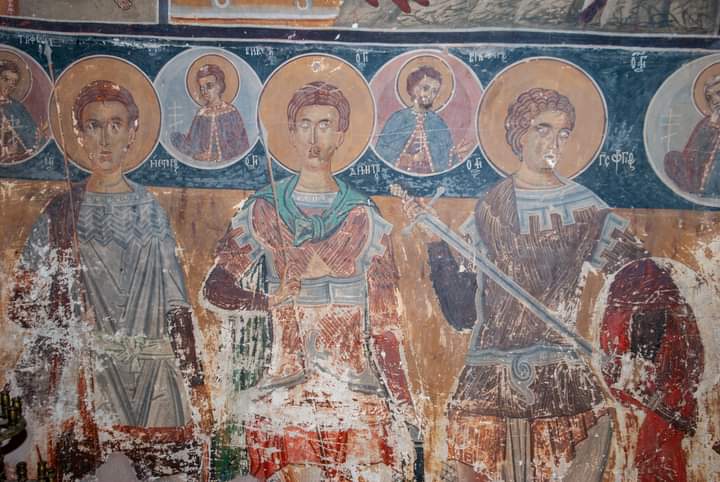The Conversion of Cornelius: A Historic Turning Point for the Church
By Prof. A.P. Lopukhin
The story of Cornelius, as told in Acts 10, marks a watershed moment in the spread of Christianity. This pivotal chapter narrates the conversion of Cornelius, a centurion stationed in Caesarea, and his subsequent baptism, which signified the first direct inclusion of a Gentile convert into the Christian Church – without any intermediate adherence to Jewish customs.
The chapter unfolds in three distinct sections: Cornelius’ vision and instructions from an angel (Acts 10:1-8), Peter’s own revelatory vision (Acts 10:9-22), and the momentous meeting between Peter and Cornelius where the Holy Spirit descends upon the Gentiles (Acts 10:23-48).
Cornelius’ Vision: A Divine Instruction
Cornelius, a Roman centurion of the Italian regiment based in Caesarea, was described as a devout and generous man who prayed regularly to God (Acts 10:1-2). Despite being a Gentile, Cornelius had been influenced by Jewish religious practices and had a heartfelt fear of the one true God. One day, at the ninth hour (around 3 p.m.), while praying, an angel appeared to him. The angel acknowledged Cornelius’ faithfulness and almsgiving, declaring that his prayers had reached God as a memorial (Acts 10:4). The angel instructed Cornelius to send for Simon Peter, who was staying in Joppa by the sea at the house of Simon the tanner (Acts 10:5-6). Cornelius quickly obeyed, sending two of his servants and a devout soldier to fetch Peter (Acts 10:7-8).
Peter’s Vision: A Lesson in Inclusion
While Cornelius’ messengers were on their way to Joppa, Peter also had a vision. As Peter was praying on a rooftop around noon, he became hungry and fell into a trance. In his vision, Peter saw heaven open and a large sheet descend, filled with all kinds of animals, many of which were considered unclean according to Jewish dietary laws (Acts 10:11-12). A voice told Peter to “kill and eat” (Acts 10:13). Peter, adhering to Jewish law, refused, stating he had never eaten anything impure (Acts 10:14). The voice responded, “What God has made clean, do not call impure” (Acts 10:15). This exchange occurred three times, leaving Peter perplexed about its meaning (Acts 10:16-17).
At that moment, Cornelius’ messengers arrived at Peter’s lodging. The Holy Spirit directed Peter to go with them without hesitation (Acts 10:19-20). Understanding that the vision was not merely about dietary laws but about the inclusivity of God’s plan of salvation, Peter agreed to go with the men (Acts 10:21-23).
Peter Meets Cornelius: The Holy Spirit Descends
Peter set out the next day with some of the believers from Joppa, arriving in Caesarea on the following day (Acts 10:24). Cornelius, in anticipation, had gathered his family and close friends (Acts 10:24). When Peter entered the house, Cornelius, in deep reverence, fell at Peter’s feet, but Peter immediately lifted him, reminding him, “Stand up; I am only a man myself” (Acts 10:26). Peter then addressed everyone present, explaining that while Jewish law traditionally prohibited close association with Gentiles, God had revealed to him that no person should be considered impure or unclean (Acts 10:28).
Cornelius recounted his vision to Peter, and Peter, realizing the universality of God’s salvation plan, began preaching the good news of Jesus Christ to the gathered Gentiles (Acts 10:30-34). Peter proclaimed that God shows no favoritism and that anyone who fears Him and does what is right is accepted by Him (Acts 10:35). He went on to explain the life, death, and resurrection of Jesus Christ, emphasizing that Jesus is Lord of all – both Jews and Gentiles alike (Acts 10:36-43).
While Peter was still speaking, the Holy Spirit fell upon all who were listening, astonishing the Jewish believers who had accompanied Peter. They were amazed that the gift of the Holy Spirit had been poured out even on Gentiles, as they heard them speaking in tongues and praising God (Acts 10:44-46). Seeing this, Peter immediately ordered that they be baptized in the name of Jesus Christ (Acts 10:47-48).
Significance of Cornelius’ Conversion: The Dawn of a New Era
The conversion and baptism of Cornelius were of profound importance for














Leave a Reply